Fleurs du Mal Magazine


Or see the index

Martin Beversluis
Dit hart
Dit hart is een kerk
waar je heen kunt met vragen
een plaats waar eenzaamheid
van tijd tot tijd minder wordt of slijt
dit hart is een hutje op de hei voor jou alleen
dit hart houdt een sportieve uitdaging in
het daagt liefde uit tot zomerse capriolen
dit hart zwelt en slinkt in iedere beweging
het pinkt soms ontroerd een traan weg
dit hart heeft een kamer waar je rouwen kunt
de muren bestand tegen boosheid
de ramen ontkennen het plafond huilt
als herinneringen niet overgaan
dit hart is een bed om in lief te hebben
oogopslag gemoedstoestand geheimgehouden
als strelingen over verborgen verleden
vragende ogen verzachtende omstandigheden
is smelten als was
dit hart loopt stilaan over van liefde
het zingt de melodie van het universum
wacht tot de wereld gaat draaien.
Martin Beversluis poetry
fleursdumal.nl magazine
More in: Archive A-B, Beversluis, Martin
.jpg)
Delmira Agustini
(1886-1914)
Inextinguibles
¡Oh, tú que duermes tan hondo que no despiertas!
Milagrosas de vivas, milagrosas de muertas,
Y por muertas y vivas eternamente abiertas,
Alguna noche en duelo yo encuentro tus pupilas
Bajo un trapo de sombra o una blonda de luna.
Bebo en ellas la Calma como en una laguna.
Por hondas, por calladas, por buenas, por tranquilas
Un lecho o una tumba parece cada una.
Delmira Augustini poetry
fleursdumal.nl magazine
More in: Agustini, Delmira, Archive A-B

Elizabeth Barrett Browning
(1806 – 1861)
The Cry Of The Children
Do ye hear the children weeping, O my brothers,
Ere the sorrow comes with years?
They are leaning their young heads against their mothers—
And that cannot stop their tears.
The young lambs are bleating in the meadows;
The young birds are chirping in the nest;
The young fawns are playing with the shadows;
The young flowers are blowing toward the west—
But the young, young children, O my brothers,
They are weeping bitterly!—
They are weeping in the playtime of the others
In the country of the free.
Do you question the young children in the sorrow,
Why their tears are falling so?—
The old man may weep for his to-morrow
Which is lost in Long Ago—
The old tree is leafless in the forest—
The old year is ending in the frost—
The old wound, if stricken, is the sorest—
The old hope is hardest to be lost:
But the young, young children, O my brothers,
Do you ask them why they stand
Weeping sore before the bosoms of their mothers,
In our happy Fatherland?
They look up with their pale and sunken faces,
And their looks are sad to see,
For the man’s grief abhorrent, draws and presses
Down the cheeks of infancy—
“Your old earth,” they say, “is very dreary;”
“Our young feet,” they say, “are very weak!
Few paces have we taken, yet are wearyÑ
Our grave-rest is very far to seek.
Ask the old why they weep, and not the children,
For the outside earth is cold,—
And we young ones stand without, in our bewildering,
And the graves are for the old.
“True,” say the young children, “it may happen
That we die before our time.
Little Alice died last year—the grave is shapen
Like a snowball, in the rime.
We looked into the pit prepared to take her—
Was no room for any work in the close clay:
From the sleep wherein she lieth none will wake her
Crying, ‘Get up, little Alice! it is day.’
If you listen by that grave, in sun and shower,
With your ear down, little Alice never cries!—
Could we see her face, be sure we should not know her,
For the smile has time for growing in her eyes—
And merry go her moments, lulled and stilled in
The shroud, by the kirk-chime!
It is good when it happens,” say the children,
“That we die before our time.”
Alas, alas, the children! they are seeking
Death in life, as best to have!
They are binding up their hearts away from breaking,
With a cerement from the grave.
Go out, children, from the mine and from the city—
Sing out, children, as the little thrushes do—
Pluck your handfuls of the meadow-cowslips pretty—
Laugh aloud, to feel your fingers let them through!
But they answer, “Are your cowslips of the meadows
Like our weeds anear the mine?
Leave us quiet in the dark of the coal-shadows,
From your pleasures fair and fine!
“For oh,” say the children, “we are weary,
And we cannot run or leap—
If we cared for any meadows, it were merely
To drop down in them and sleep.
Our knees tremble sorely in the stooping—
We fall upon our faces, trying to go;
And, underneath our heavy eyelids drooping,
The reddest flower would look as pale as snow.
For, all day, we drag our burden tiring,
Through the coal-dark, underground—
Or, all day, we drive the wheels of iron
In the factories, round and round.
“For, all day, the wheels are droning, turning,—
Their wind comes in our faces,—
Till our hearts turn,—our head, with pulses burning,
And the walls turn in their places—
Turns the sky in the high window blank and reeling—
Turns the long light that droppeth down the wall—
Turn the black flies that crawl along the ceiling—
All are turning, all the day, and we with all.—
And, all day, the iron wheels are droning;
And sometimes we could pray,
‘O ye wheels,’ (breaking out in a mad moaning)
‘Stop! be silent for to-day!’ “
Ay! be silent! Let them hear each other breathing
For a moment, mouth to mouth—
Let them touch each other’s hands, in a fresh wreathing
Of their tender human youth!
Let them feel that this cold metallic motion
Is not all the life God fashions or reveals—
Let them prove their inward souls against the notion
That they live in you, os under you, O wheels!—
Still, all day, the iron wheels go onward,
Grinding life down from its mark;
And the children’s souls, which God is calling sunward,
Spin on blindly in the dark.
Now, tell the poor young children, O my brothers,
To look up to Him and pray—
So the blessed One, who blesseth all the others,
Will bless them another day.
They answer, “Who is God that He should hear us,
White the rushing of the iron wheels is stirred?
When we sob aloud, the human creatures near us
Pass by, hearing not, or answer not a word!
And we hear not (for the wheels in their resounding)
Strangers speaking at the door:
Is it likely God, with angels singing round Him,
Hears our weeping any more?
“Two words, indeed, of praying we remember,
And at midnight’s hour of harm,—
‘Our Father,’ looking upward in the chamber,
We say softly for a charm.
We know no other words except ‘Our Father,’
And we think that, in some pause of angels’ song,
God may pluck them with the silence sweet to gather,
And hold both within His right hand which is strong.
‘Our Father!’ If He heard us, He would surely
(For they call Him good and mild)
Answer, smiling down the steep world very purely,
‘Come and rest with me, my child.’
“But no!” say the children, weeping faster,
“He is speechless as a stone;
And they tell us, of His image is the master
Who commands us to work on.
Go to!” say the children,—“Up in Heaven,
Dark, wheel-like, turning clouds are all we find.
Do not mock us; grief has made us unbelieving—
We look up for God, but tears have made us blind.”
Do you hear the children weeping and disproving,
O my brothers, what ye preach?
For God’s possible is taught by His world’s loving—
And the children doubt of each.
And well may the children weep before you;
They are weary ere they run;
They have never seen the sunshine, nor the glory
Which is brighter than the sun:
They know the grief of man, but not the wisdom;
They sink in man’s despair, without its calm—
Are slaves, without the liberty in Christdom,—
Are martyrs, by the pang without the palm,—
Are worn, as if with age, yet unretrievingly
No dear remembrance keep,—
Are orphans of the earthly love and heavenly:
Let them weep! let them weep!
They look up, with their pale and sunken faces,
And their look is dread to see,
For they mind you of their angels in their places,
With eyes meant for Deity;—
“How long,” they say, “how long, O cruel nation,
Will you stand, to move the world, on a child’s heart,
Stifle down with a mailed heel its palpitation,
And tread onward to your throne amid the mart?
Our blood splashes upward, O our tyrants,
And your purple shows yo}r path;
But the child’s sob curseth deeper in the silence
Than the strong man in his wrath!”
Elizabeth Barrett Browning poetry
fleursdumal.nl magazine
More in: Archive A-B, Barrett Browning, Elizabeth
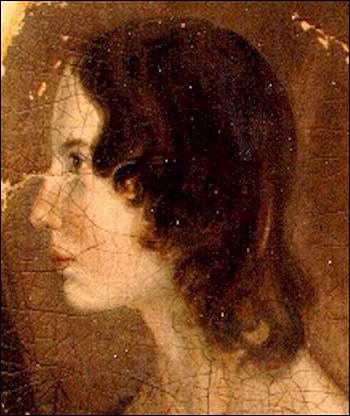
Emily Jane Brontë
(1818-1848)
Remembrance
Cold in the earth–and the deep snow piled above thee,
Far, far, removed, cold in the dreary grave!
Have I forgot, my only Love, to love thee,
Severed at last by Time’s all-severing wave?
Now, when alone, do my thoughts no longer hover
Over the mountains, on that northern shore,
Resting their wings where heath and fern-leaves cover
Thy noble heart for ever, ever more?
Cold in the earth–and fifteen wild Decembers,
From those brown hills, have melted into spring:
Faithful, indeed, is the spirit that remembers
After such years of change and suffering!
Sweet Love of youth, forgive, if I forget thee,
While the world’s tide is bearing me along;
Other desires and other hopes beset me,
Hopes which obscure, but cannot do thee wrong!
No later light has lightened up my heaven,
No second morn has ever shone for me;
All my life’s bliss from thy dear life was given,
All my life’s bliss is in the grave with thee.
But, when the days of golden dreams had perished,
And even Despair was powerless to destroy;
Then did I learn how existence could be cherished,
Strengthened, and fed without the aid of joy.
Then did I check the tears of useless passion–
Weaned my young soul from yearning after thine;
Sternly denied its burning wish to hasten
Down to that tomb already more than mine.
And, even yet, I dare not let it languish,
Dare not indulge in memory’s rapturous pain;
Once drinking deep of that divinest anguish,
How could I seek the empty world again?
.jpg)
Ellis Bell (Emily Jane Brontë) poetry
fleursdumal.nl magazine
More in: - Archive Tombeau de la jeunesse, Anne, Emily & Charlotte Brontë, Archive A-B, Brontë, Anne, Emily & Charlotte

Hervonden klassenfoto
Vreemd hoe je eens als kind een lens inkeek:
temidden van je klasgenoten door een klik
daar neergezet als ventje in een groepsportret.
Voor altijd een verlegen glimlach naar
een meneer van wie je na een paar keer weer
naar school niet eens ’t gezicht meer wist.
Het lijkt wel of ik lang al dacht te weten
mij ooit op die plaats terug te willen zien
zo helemaal mezelf kijk ik daar aan,
al kon ik toen geen naam nog geven
aan het komen van de jaren, die met het
geduld van volle fotoalbums ook weer gaan.
Bert Bevers gedichten
uit Afglans, Uitgeverij WEL, Bergen op Zoom, 1997 © Bert Bevers
fleursdumal.nl magazine
More in: Archive A-B, Bevers, Bert

P.C. Boutens
(1870-1943)
Afscheid
Hier ben ik weêr.
De najaarszon die wolkgedoofd
Het bronzen loof in ‘t hooge hout
Boven ons hoofd
Daglang belichtte zilverkoud,
Viel aan den steilen hemel neêr
En overstroomt den grond met vloeibaar goud:
Hier ben ik weêr!
Ik moest door ‘t bloedewarme bad
Terug, tot u, ‘k weet niet waarom –
Maar vóor de korte scheemring kom
En dan de nacht,
Treed éens nog tot mij langs het oude pad
En spreek geen woord, maar glimlach zacht
Zooals gij placht.
Berusting die ons zomerwoon
Zoolang omsluipt
En met haar vale kille draden
Al nader-wevend ons bekruipt,
Zag ik van-ver, een bleeken hoon,
In de spelonk der diepe paden, –
Zelfs zij was rood en schoon!
Ik weet de zomer is voorbij,
Mijn hart roept niet terug om Mei,
En dit is de avondzon –
Maar o
Vertoon u laatst in ‘t klare vuur
Van dit hel uur,
Of ik u zóo
Onthouden kon!
P.C. Boutens poetry
fleursdumal.nl magazine
More in: Archive A-B, Boutens, P.C.
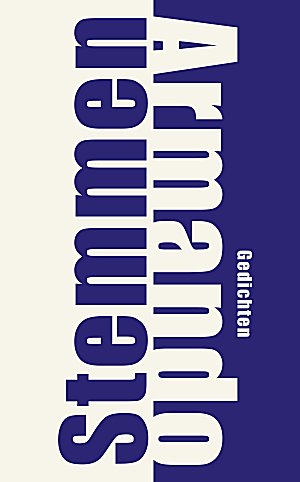
VPRO BOEKEN met Armando & Oek de Jong
zo 20 oktober 2013
De 84-jarige Armando beschouwt zijn werk als Gesamtkunstwerk: hij heeft theater, televisie, schilderijen, sculpturen, proza en poëzie gemaakt. Nu is daar zijn nieuwe gedichtenbundel Stemmen.
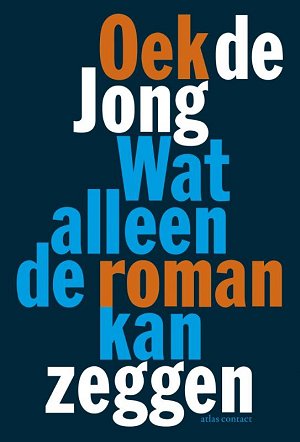
In Wat alleen de roman kan zeggen geeft schrijver Oek de Jong antwoord op de vraag: hoe kan de roman overleven in een tijd waarin hij met zoveel andere media moet concurreren? De Jong laat zien wat het unieke en onvervangbare is van de roman.
Deze aflevering wordt zondag uitgezonden, om 11.20 uur op Nederland 1
fleursdumal.nl magazine
More in: - Book News, Archive A-B, Archive I-J, Archive I-J, Armando, Art & Literature News

Man met regenscherm
Bij een tekening van Fernand Khnopff
Valt een bui. Langs hem heen. 1884.
Van hedendaags belang ontdaan is hier meneer
Edmond Picard slechts prachtig weggezette man
die een verzonnen zwezerik van kalf at, en volgens mij
dronk hij daarna nog lui wat bier.
Dat toch de wereld kaal is. Gedachte. Half op weg.
Zijn hoofd zit vol waardinnenboezem en potdicht
van de Wagnerdeunen. Hij is regenschermglad
van zin in meer. Heet wat zich daar vlak voor hem
in een plas legt nu nog schaduw of past in dit weer
een ander woord? Zwijgend als vermoord kijkt hij
schuw van alle leegte amper schamper
Bert Bevers gedichten
uit In de buurt van de wereld, Kleinood & Grootzeer, Bergen op Zoom, 2006
fleursdumal.nl magazine
More in: Archive A-B, Bevers, Bert
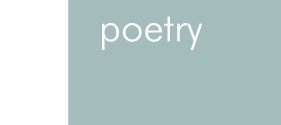
MARTIN BEVERSLUIS
Tijdbom
Woorden zijn gordijnen die je toedoet
zodra het spektakel is afgelopen het
waren mooie beelden een stuk of acht
jongens die in het midden van de nacht
iemand aanvielen en helemaal verrot
schopten na de daden komen dan altijd
de woorden die van afschuw het eerst
dan is het gevaar geweken kunnen we
de toedracht gaan verklaren deze tijden
zijn van teruggang en onbegrip dat vatten
we onvermijdelijk persoonlijk op hoe kan
dit mij overkomen een frustratio die er
toe doet die smeekt om een uitlaatklep
het grote verklaren is begonnen na ieder
conflict begrijpen we meer tot begrip ook
niet meer helpt en het recht van de sterkste
geldt deze woorden zijn gordijnen die
je dicht doet als je het denkraam sluit
een tijdbom wordt terloops ontploft.
Martin Beversluis poetry
fleursdumal.nl magazine
More in: Archive A-B, Beversluis, Martin
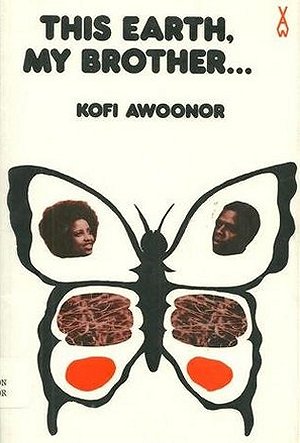
Ghanaian poet Kofi Awoonor
died during attack at Nairobian shopping mall
23 september 2013
Ghanaian poet Professor Kofi Awoonor has died during the attack at Nairobian shopping centre Westgate Mall. He died on Saturday, aged 78, from injuries sustained in the attack in Nairobi.
Kofi Awoonor was in Nairobi to speak at the Storymoja Hay Festival, a four-day international litarary festival. Performers were also Ghanaian poets Nii Parkes and Kwame Dawes. Awoonor was due to perform on this festival on Saturday evening.
Awoonor was born in 1935 and became known for his poetry, inspired by the oral poetry of his native Ewe tribe. Awoonor gained a masters degree in literature at London University in 1970. His second collection of poetry, Night of My Blood, was published in 1971, a series of poems that explore his roots of colonialism and foreign rule in Africa.
His son was also shot, but has later been discharged from hospital.
Kofi Awoonor
Songs of Sorrow
I
Dzogbese Lisa has treated me thus
It has led me among the sharps of the forest
Returning is not possible
And going forward is a great difficulty
The affairs of this world are like the chameleon faeces
Into which I have stepped
When I clean it cannot go.
I am on the world’s extreme corner,
I am not sitting in the row with the eminent
But those who are lucky
Sit in the middle and forget
I am on the world’s extreme corner
I can only go beyond and forget.
My people, I have been somewhere
If I turn here, the rain beats me
If I turn there the sun burns me
The firewood of this world
Is for only those who can take heart
That is why not all can gather it.
The world is not good for anybody
But you are so happy with your fate;
Alas! the travelers are back
All covered with debt.
II
Something has happened to me
The things so great that I cannot weep
I have no sons to fire the gun when I die
And no daughter to wail when I close my mouth
I have wandered on the wilderness
The great wilderness men call life
The rain has beaten me,
And the sharp stumps cut as keen as knives
I shall go beyond and rest.
I have no kin and no brother,
Death has made war upon our house;
And Kpeti’s great household is no more,
Only the broken fence stands;
And those who dared not look in his face
Have come out as men.
How well their pride is with them.
Let those gone before take note
They have treated their offspring badly.
What is the wailing for?
Somebody is dead. Agosu himself
Alas! a snake has bitten me
My right arm is broken,
And the tree on which I lean is fallen.
Agosi if you go tell them,
Tell Nyidevu, Kpeti, and Kove
That they have done us evil;
Tell them their house is falling
And the trees in the fence
Have been eaten by termites
That the martels curse them.
Ask them why they idle there
While we suffer, and eat sand.
And the crow and the vulture
Hover always above our broken fences
And strangers walk over our portion.
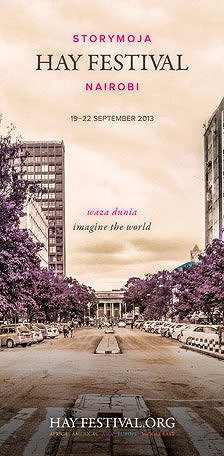
Publications
1964 Rediscovery and Other Poems (poetry)
1971 Night of My Blood (poetry)
1971 This Earth, My Brother … An Allegorical Tale of Africa (novel)
1972 Come Back, Ghana
1973 Ride Me, Memory (poetry)
1975 The Breast of the Earth: A Survey of the History, Culture and Literature of Africa South of the Sahara
1978 The House by the Sea (poetry)
1984 The Ghana Revolution: A Background Account from a Personal Perspective
1987 Until the Morning After: Collected Poems (poetry)
1990 Ghana: A Political History from Pre-European to Modern Times
1992 Comes the Voyager at Last: A Tale of Return to Africa (novel)
1992 The Latin American and Caribbean Notebook (poetry)
1994 Africa, the Marginalized Continent
2002 Herding the Lost Lamb (poetry)
2006 The African Predicament: Collected Essays
# More Ghanaian poetry on website POETRY FOUNDATION GHANA
# Website Hay Festival Nairobi
fleursdumal.nl magazine
More in: Archive A-B, In Memoriam
.jpg)
Delmira Agustini
(1886-1914)
Al Claro De Luna
La luna es pálida y triste, la luna es exangüe y yerta.
La media luna figúraseme un suave perfil de muerta…
Yo que prefiero a la insigne palidez encarecida
De todas las perlas árabes, la rosa recién abierta,
En un rincón del terruño con el color de la vida,
Adoro esa luna pálida, adoro esa faz de muerta!
Y en el altar de las noches, como una flor encendida
Y ebria de extraños perfumes, mi alma la inciensa rendida.
Yo sé de labios marchitos en la blasfemia y el vino,
Que besan tras de la orgia sus huellas en el camino;
Locos que mueren besando su imagen en lagos yertos…
Porque ella es luz de inocencia, porque a esa luz misteriosa
Alumbran las cosas blancas, se ponen blancas las cosas,
Y hasta las almas más negras toman clarores inciertos!
Delmira Augustini poetry
fleursdumal.nl magazine
More in: Agustini, Delmira, Archive A-B

MARTIN BEVERSLUIS
T.
Twee torenspitsen tanken twaalf
tellen tegenlicht tevens treitert
toeval talent telkens tegenslagen
tenenkrommend toen totems
tempels tanend talmend toezagen
trots toestonden tof tekortschoten
tekens tegenwoordig tampeloeres
tetanus teef toverstafjes trainden
tafels tegen tranen tegenstrevers
toonden taken tuitten totnogtoe
toeten toverden tepels troon
toekenning tomaten tijd totaal
tenietgedaan toekomsten toch
toegestaan tilburg tilt tot top.
Martin Beversluis poetry
fleursdumal.nl magazine
More in: Archive A-B, Beversluis, Martin
Thank you for reading Fleurs du Mal - magazine for art & literature